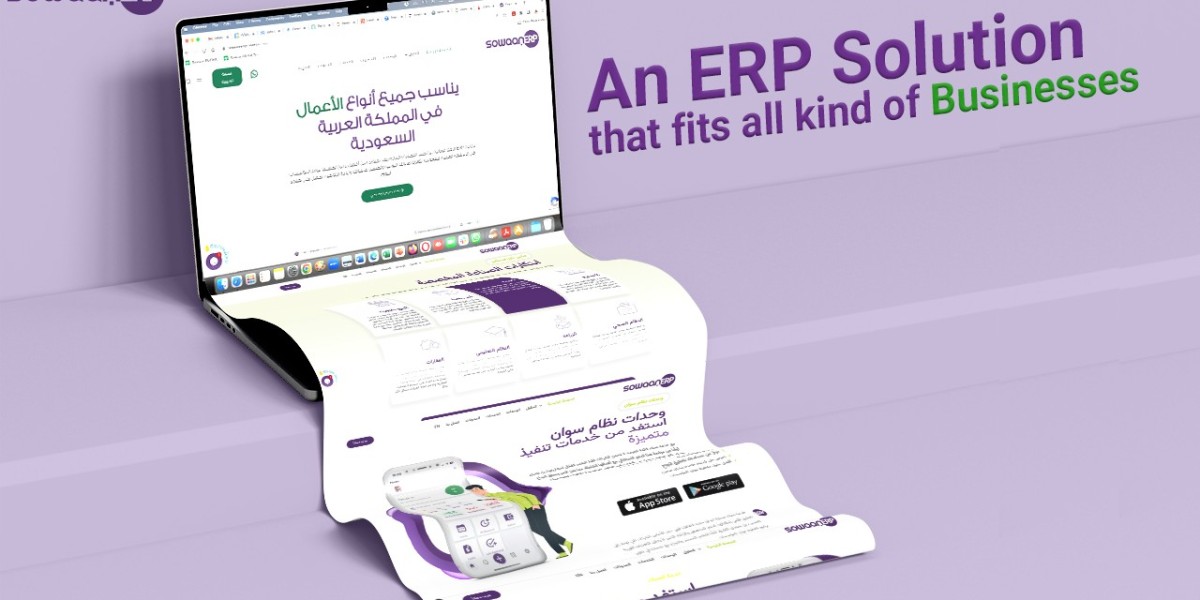With Saudi Arabia moving towards its Vision 2030 objectives, digital transformation has been one of the major priorities of the businesses in all sectors. The implementation of the e-invoicing as required by the Zakat, Tax and Customs Authority (ZATCA) moves is one of the important milestones in this process. Not only is the use of such a secure and reliable platform for invoice validation and digital signature now optional, but a necessity to companies operating in the Kingdom. In this blog, we look at how such erp software saudi arabia platforms can guarantee ZATCA compliance and simplify the operations of the contemporary business.
The Role of ZATCA in Digitization:
ZATCA provided the e-invoicing rules in two phases to promote transparency, minimize the shadow economy, and enhance management over business affairs. The generation of electronic invoices rather than the paper-based ones was a fundamental change that was dictated by the first phase. However, with Phase Two, which was the integration phase, the technical standards became more stringent whereby invoices had to be validated and digitally signed, before sending them to ZATCA, in real-time.
Businesses have to now take care of the fact that all the invoices should now be in the required form of XML, with the necessary fields defined in the guidelines and with a cryptographic digital signature. Such accuracy and stability require a reliable online platform to handle the whole procedure of validation and signing without hesitation or mistake.
Interpreting Invoice Validation in Saudi:
The first important step that should be taken before its submission is invoice validation. Any e-invoice is subjected to a strict examination to make sure that the contents of the document meet the technical and legal requirements of ZATCA. It includes investigating such areas as VAT registration numbers, timestamps, UUIDs, and other identifiers. The slightest mismatch may result in rejection of the invoice or non-compliance.
The reasons why Digital Signatures are essential to ZATCA:
The main pillar of secure e-invoicing is digital signatures. ZATCA requires that all invoices to be submitted during Phase Two should be signed with digital certificate by an approved Certificate Service Provider (CSP). This digital signature guarantees zatca approved accounting software that the invoice comes out of a trusted source and that it has not been tampered with since its issuance.
The digital signature does more than ensure authenticity and integrity of the invoice, it offers traceability. Every signature is cryptographically tied to the invoice content and the identity of the issuer. The absence of this digital stamp will make the invoices invalid and will not be accepted by the ZATCA system.
A trusted digital signature system will make cryptographic process take place smoothly. It inserts the digital certificate into the invoice, encrypts the data and secures the invoice payload without any manual intervention. This is done in practically a flash of a second, making businesses to have a continuous and compliant workflow.
Business Systems Integration Capabilities:
An invoice validation and digital signature system cannot work in a vacuum. It connects with current accounting, ERP and sales management software to provide a smooth invoicing system. As soon as an invoice has been created in the internal system, the platform comes into action, authenticates the invoice, digital-signs it and sends it to ZATCA to be approved in the background.
Compliance and Penalty Avoidance:
Failure to comply with ZATCA e-invoicing system may result in dire consequences comprising penalties, fines, business interruptions. As Phase Two comes into full swing, invoice transmissions, real-time reporting and digital signature authenticity are under close inspection by the authorities.
Through the deployment of a trusted invoice validation and digital signature platform, companies do not only check the compliance box, but future-proof their operations. Such platforms provide audit trail, secure storage of invoices, and provide continuous monitoring to enable companies to be prepared to face any audit by ZATCA or inspection.
Conclusion:
The transformation of Saudi Arabia to digitalized tax systems is a part of the overall trend of aligning with the world best practices. To businesses, this change requires an investment in tools that will meet the regulatory demands, but also help companies to achieve efficiency, accuracy and transparency. A thorough invoice verification and electronic signature platform is what will assist in closing the gap between compliance and operational excellence.
With the maturity of the digital economy, it is expected that these platforms will develop to feature AI-powered anomaly detection, fraud prevention, and advanced reporting capabilities: to make smart business decisions and regulatory compliance at every stage. In the meantime, the appropriate solution is the most correct step in the future-proof, ZATCA-compliant invoicing.








